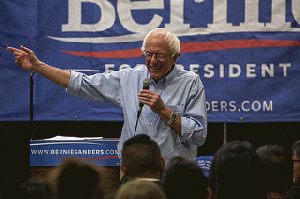In 1967, the United States was digging itself deeper into the war in Vietnam.
The anti-war movement was being forged by the youth, energetic and willing to stand up to establishment values. They were the peace-loving environmentally-friendly hippies, the more radical but fun-loving Yippies, and those who held weekday establishment jobs and resented the structure and rules of an older generation that had survived the economic depression of the 1930s, the war years of the 1940s and early 1950s, and now wanted the "Happy Days" comfort of the 1950s.
But it was during this decade that the Cold War emerged; the right-wing surfaced and declared anyone with non-establishment views were Communists. The witch hunts of the 17th century colonies had morphed into the fear, panic, and undermining of the Constitution by the demigods of business and government who decided that anyone with liberal views, especially those in the arts and sciences, were anti-American and needed to be condemned.
A string tied the country to Southeast Asia where a civil war had begun, one that led Americans to believe in a false political philosophy known as the Domino Theory--if Vietnam fell to the Communists, then Laos, Cambodia, and Thailand would next fall to the Communists--and then, like dominos, one country after another would fall until the Red Menace would eventually invade and overcome the United States.
John F. Kennedy sent military "advisors" into Vietnam to save the south from Communism. And then, Lyndon B. Johnson escalated the war. By 1967, more than 400,000 Americans were in combat, the majority of civilians were cheering what they believed would be a successful end of Communism--and the anti-war movement was developing.
From Minnesota, U.S. Sen. Eugene McCarthy, a white-haired 51-year-old former teacher and college professor became the political leader of the anti-war movement, catching up to the political activism of the youth.
The media, always behind the cutting edge of society, didn't report about McCarthy--and largely ignored the increasing youth marches and rallies. After all, Johnson was president, soldiers were in Vietnam, and the youth--and the millions of anti-war, pro-civil rights, pro-environment liberals--were just rabble to be ignored.
The establishment media were certain that McCarthy had no chance to defeat the incumbent president. But in the New Hampshire Democratic primary, McCarthy got 42 percent of the vote to Johnson's 49 percent. That shook up the party and the media. In the Wisconsin and Oregon primaries, McCarthy won even more delegates. Johnson, a Southerner who had pushed through Congress a liberal agenda, especially in Civil Rights, surprised the establishment by announcing that in the interest of the country, and because he didn't wish to further divide it, he would not run for re-election.
Robert F. Kennedy soon entered the primary, dividing the anti-war vote, but was murdered in June 1968.
At the Democratic convention in Chicago two months later, McCarthy faced Vice-President Hubert Humphrey, a long-time liberal with strong ties to labor and the civil rights movement, but tainted by having supported his president's war record. The largely peaceful anti-war movement clashed with the political establishment and the largely-conservative police who wanted people to believe that the hundreds of injuries to the youth were caused by the youth deliberately banging their heads onto police billy clubs.
Humphrey won the nomination, but lost the presidency to Richard Nixon, who would resign six years later, enmeshed within scandal. Had hundreds of thousands of McCarthy's supporters not become disillusioned with establishment politics, and not been nursing their own injuries from the convention three months before the general election, Humphrey might have become president, the nation might have been freed from the war sooner than 1975, thousands of Americans would not have died or sustained permanent war injuries, and Nixon's unconstitutional attacks upon the opposition would not have added a blemish to American history.
Flash forward almost five decades.
From Vermont comes Bernie Sanders, a 74-year-old white-haired liberal senator who is challenging Hillary Clinton for the Democratic nomination. Only the rabid right-wing, who believe lies are facts and propaganda is truth, doubt Clinton's intelligence or her knowledge of domestic and foreign affairs. But, even within her own party, she is seen as the embodiment of establishment politics, with a moderate, even conservative, edge. Her wall of advisors protect her from the masses; she seems aloof, while Sanders seems to be the kindly, intelligent Jewish grandfather with a soul burning for social justice that liberals identify with.
(Note: You can view every article as one long page if you sign up as an Advocate Member, or higher).





